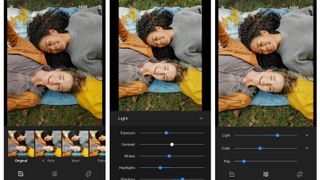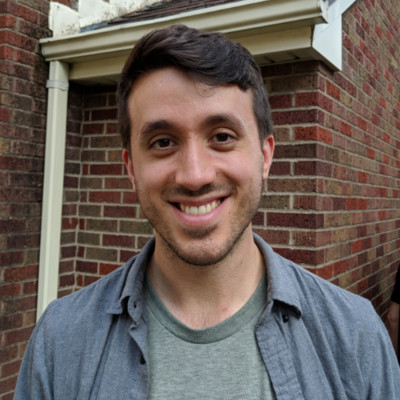This big Google Photos update gives new life to your pictures
Plus, PhotoScan will make you a hero over the holidays

Google Photos is now more capable than ever, thanks to some new machine-learning tricks introduced in today’s update, which is now available on Android and iOS.
Already renowned for granting unlimited, high-quality photo storage to its users (Google Pixel and Google Pixel XL owners can store an unlimited amount of uncompressed photos), the new update focuses on providing answers to the trickiest problems.
First, what on Earth are you going to do with your physical photos? Many scanning options are cumbersome, costly and risky, but PhotoScan, a new standalone app that feeds into Google Photos, aims to be a smarter, all-in-one solution for scanning your family’s huge, cherished collection.
To use PhotoScan, you simply align the photo, then snap away. Unlike the dreaded result seen from taking pictures of pictures (and sometimes, pictures of pictures of pictures), Google’s machine learning algorithm recreates the physical source almost 1:1, cropping out everything except the photo. Goodbye to the glare and that awkward surface you used to shoot the photo on. Simply put, this is a lifesaver.
David Lieb, the product lead at Google Photos, smiled as he talked about PhotoScan. “There’s this whole class of photos that we weren’t doing anything with.” Consider its launch is so close to the winter holidays, he quipped “this feature is going to make heroes out of a lot of kids over the holidays.” As someone who is the go-to tech person in my family, I have to agree.
Enhance, automate, and share
Lieb also shared that, with this big update, “we’re trying to solve the problems that billions of people have in common.” Sure, not everyone has physical photographs to scan into the cloud. But what photos they do possess, it’s important that they look as good as possible, and are easy to share with anyone in the friend or family circle.
To accomplish this, Google is overhauling its built-in photo editor with, you guessed it, machine learning being at the heart of it.
Get daily insight, inspiration and deals in your inbox
Get the hottest deals available in your inbox plus news, reviews, opinion, analysis and more from the TechRadar team.
Not much has changed from a user interface perspective, but now users have pro-level access to sliders that can fine-tune the delicate aspects of a photo, like exposure, skin tone, and Google’s-own Deep Blue setting that can really elevate nature-focused shots of the sky or a large body of water.
Simply put, this is a level of photo tweaking that’s usually reserved for photographers shooting images in RAW. The fact that its integrated machine learning can make a modern masterpiece out of a well-framed shot is saying something grand.

Next up, Google is broadening the machine-driven knowledge of its automated movie maker. While it can currently find a bunch of similar photos and stitch them together into a fun slideshow, the new update drills down into the particulars.
The first themed update is called Lullaby, which gathers the photos of a baby in its most peaceful state (asleep), and automatically provides a gentle soundtrack to the slideshow.
Google plans to introduce more themed machine-learning formulas for your photos in time for the upcoming winter holidays as a launching point, with more to come in early 2017, celebrating fun occasions like National Pet Day and Earth Day.
Lastly, it’s now easier than ever to share photos and albums with family and friends - even if they don’t have the Google Photos app downloaded. Although sharing a link to an already-created album isn’t a new concept, users are now able to interact and participate in the photo-sharing experience in new ways.
An easy example to consider is a vacation. Everyone has a smart device and is taking different pictures of the same experience. Of course, you’d ideally want to have them all in one, centralized location. The new update allows anyone to contribute their photos to a unified album from a simple link, with or without the app. All you need to do is sign into a Google account.
At its launch, Google Photos was considered by many as a “me too” app to compete with Apple’s Photos, and in many ways, it is. But as it has already proven in the past with its free photo storage and intelligent search, today’s huge update proves that it’s much, much more than just another photo app.
- We’ve picked out the best image hosting websites
Cameron is a writer at The Verge, focused on reviews, deals coverage, and news. He wrote for magazines and websites such as The Verge, TechRadar, Practical Photoshop, Polygon, Eater and Al Bawaba.

